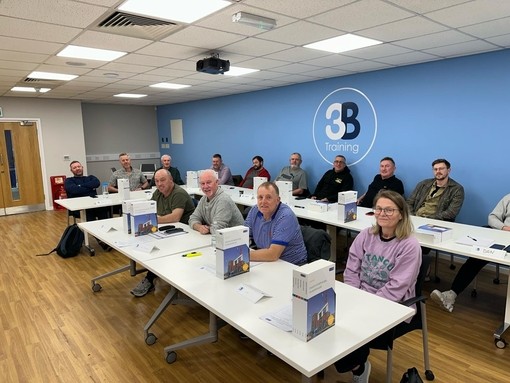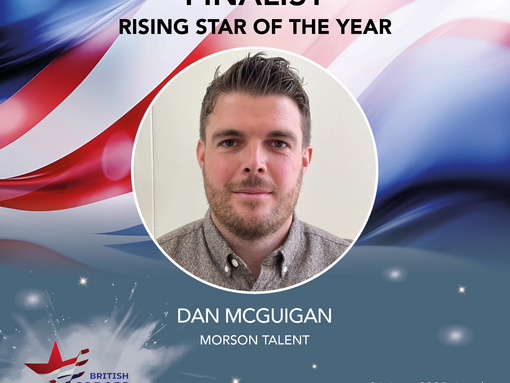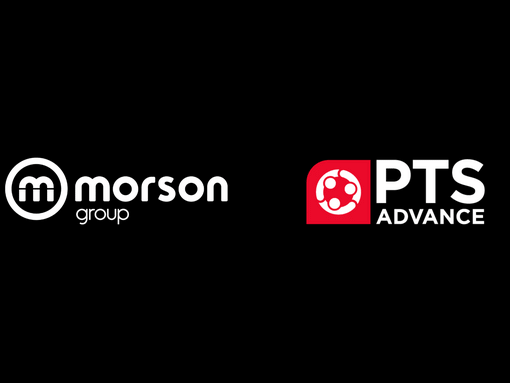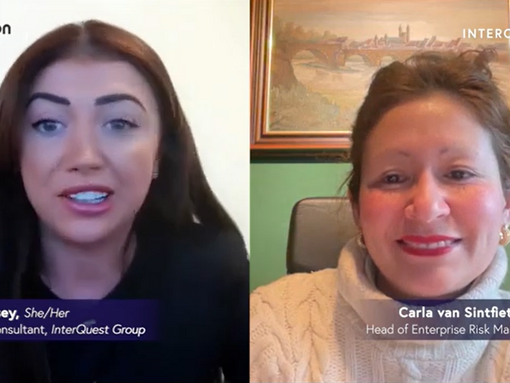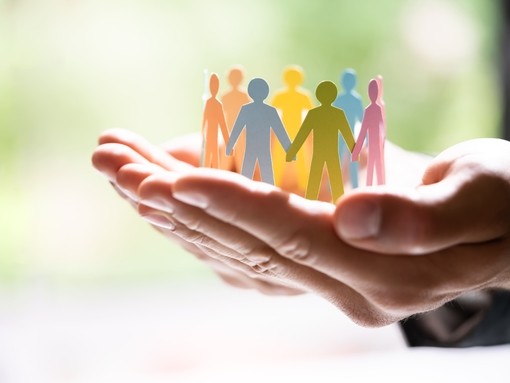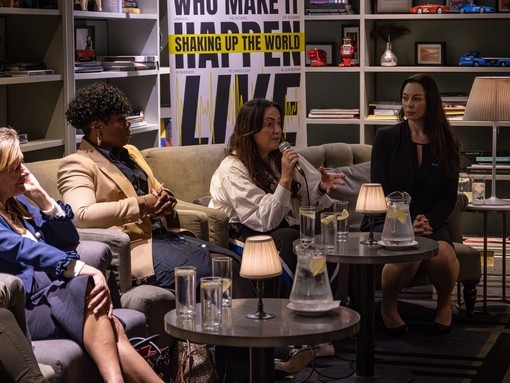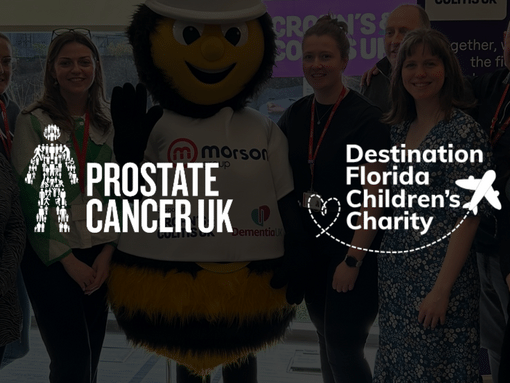
Morson put mental health in the spotlight by launching new mental health first aider programme
It’s estimated that one in four people experience at least one diagnosable mental health issue in any given year and at any one time.
15% have taken time off work due to mental health reasons. Of these, 28% were off work for more than a month.
42% did not tell their employer they were off work because of their mental health.
One in six employees will be suffering from depression, anxiety, or stress-related issues right now.
Over the last few years, mental health has, quite rightfully, been in the spotlight. More than ever, people are realising the impact of poor mental health both inside and outside the workplace – as such mental wellbeing is high on the agenda for most employers.
The topic of mental health isn’t new to us at Morson – it’s been part of our conversation for several years. Our activity has centred on creating a culture and working environment which is open, unbiased and inclusive, underpinned by professional support and resources for employees in need. Our workforce has received training on mental and emotional wellbeing and last year we surveyed our contractor population and published a whitepaper, aimed at reducing stigma and changing attitudes.
Our latest initiative goes further to weave a solid support network into our working culture. Our Mental Health First Aider programme provides personal support across our UK office network. We spoke to Heather Deering, Health, well-being and Engagement Partner to find out more about the scheme:
“Morson’s Mental Health First Aiders are colleagues who are trained to spot the signs and symptoms of mental ill health and provide help on a first aid basis in the same way that a physical first aider would. They’re able to recognise the warning signs of mental ill health or emotional distress, approach discussions in a sensitive and non-judgemental manner, and guide people to appropriate resources if they need them.”
“For us, putting Mental Health First Aiders in place across the business is a way of demonstrating that it’s okay to talk about mental health in the workplace, it’s to encourage anybody who is experiencing distress to reach out for help, and then actually providing that help.”
Watch the full video
We asked out Mental Health First Aiders what inspired them to join the programme…
At Morson, we recognise that mental wellbeing is more than just the absence of mental health issues – it’s a state of contentment, the ability to respond well to everyday stresses and to contribute to and participate in the world around us.
We have a fantastic family culture at Morson where everyone strives to help each other as much as they can. That’s why finding volunteers to become Mental Health First Aiders was an easy task for us. Some of our volunteers share what inspired them to sign up and help people across the business…
Leonie Kellar, Resourcer and MHFA at Morson International said:
“Just the opportunity to really help people, I’ve also worked in a hospital before helping people with mental health issues as part of my college course.”
Gareth Morris, Morson Group’s HSQE Director and MHFA added:
“I’ve been touched with it with various immediate members of my family and it’s always been there in my mind that I look after health in terms of health and safety and health includes physical wellbeing and also mental wellbeing and that mental wellbeing is as equally important as physical wellbeing.”
“Looking after the staff is so important because the staff are our assets and if people are well they are productive, they’re happy and they get more out of work and we get more out of work as well.”
Research shows that being in work can have a positive impact on a person’s mental health. Apart from obvious benefits like providing a source of income, work can provide a powerful sense of identity, the opportunity to connect and build relationships with others, and a way to build self-esteem through achieving and contributing to a collective goal.
Michaela Elliot, Recruiter and MHFA at Morson International discussed the need for conversation:
“We need to get people out there talking. The statistics show that there are so many people out there that are not talking and if we are able to get one person talking that will help as many people that need the help and let them know that we are here to support them and to guide them to the correct people that they can speak to.”
But what support is available to Morson employees?
In terms of reactive support when somebody is having a tough time, we now have the Mental Health First Aider network in place, and we’re working hard to make sure it’s well-publicised and feels accessible. We understand that some people might feel comfortable speaking to a familiar face, whereas others might prefer to speak to somebody who doesn’t really know them, who might be many miles away in a different office. We also offer the Employee Assistance Programme where our colleagues have 24/7, confidential access to trained counsellors who they can speak to over the phone or online, and that’s completely external to Morson.
Our Mental Health First Aiders discuss the importance of their role and how they hope to help:
Leonie said:
“Someone’s actually got the opportunity to speak to someone if they need to, even if it isn’t necessarily that they’re in a crisis, they’ve got the opportunity to speak to somebody and help them through any issues or guide them in the right place.”
Gareth added:
“It’s just conversations. It’s people coming to you or you bumping into people and having a general conversation when you’re in the breakout area… How are you? How are things? And if people do show signs that they have some anxiety or stress then to perhaps give them guidance in where they can go for support.”
As part of our mental health awareness initiative, we have responded to employee feedback requesting more practical guidance around mental health in the workplace. As a result, we have created a new toolkit which looks at subjects such as signs and signals someone might be experiencing a mental health issue and how to approach a conversation around mental health.Click below to download the toolkit.
Every Mental Health First Aider at Morson has a white lanyard as opposed to the red lanyard that the rest of our employees wear. This ensures that our First Aiders are easily identifiable to someone who may need to chat if they wish to do so.
Leonie chats about their importance:
“I know when we initially did the training there weren’t many people that were aware that we’d even done it or who the Mental Health First Aiders were. So now its raising awareness, one of mental health and also who to speak to if you need to.”
Mental health is something that Morson is serious about and we’ve detailed our commitment very clearly to both our employees to ensure they know what support is available and where to go for it.
“The key point for me is that our Mental Health Strategy is an ongoing thing – we as a HR team are completely receptive to hearing thoughts and feelings about our initiatives, and I encourage anybody who has suggestions about what we can be doing to get in touch with me and share them.” – Heather Deering, Health, Wellbeing and Engagement Partner.
If you’re struggling with a mental health issue and would like to speak to someone or seek support, you can contact the Samaritans’ free helpline number 24 hours a day, 365 days a year by calling 116 123.

